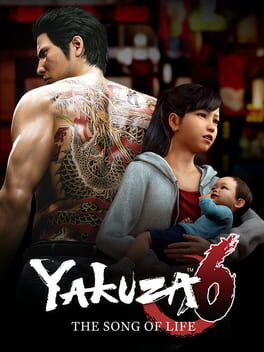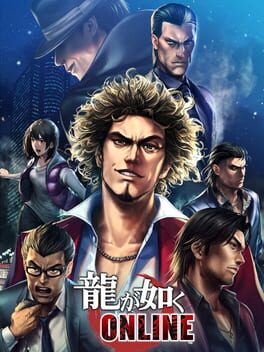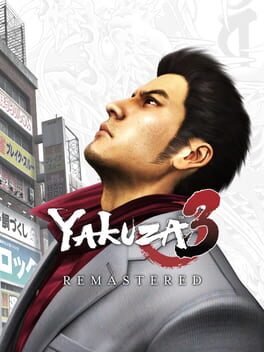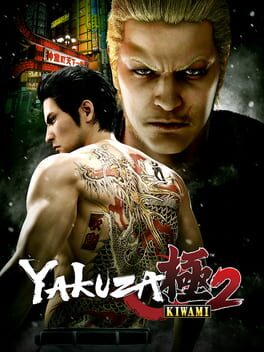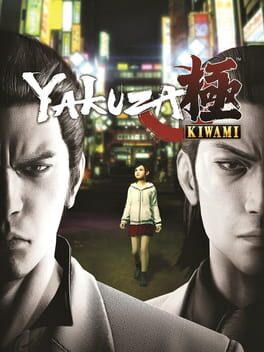

Step into Japan's criminal underworld in this explosive action brawler starring legendary yakuza, Kazuma Kiryu, who is hellbent on unraveling the truth around his daughter's tragic accident.
Also in series
Reviews View More
Haruka cagandola y creando un conflicto innecesario que hace que muera gente por sexta vez: el juego.
luego de más de medio año desde que me termine Yakuza 0 (si, mi primer Yakuza no fue el 0, lo jugué luego del 5), al fin he decidido en volver a retomar la saga y he terminado con sentimientos encontrados... no mencionaré aún lo que siempre he dicho de mi problema con Kiriu como prota, de eso hablaré más adelante, pero es que en general he sentido muy blando esta entrega comparándola con entregas pasadas... alguno que otro personaje se salva, pero la mayoría de los nuevos no tienen carisma y aunque tiene sus momentos de escenas bastante fuertes y dramáticas, la historia en general es aburrida y más parece una excusa para tener a Kiriu involucrado ya que ni siquiera se esfuerzan en desarrollar a los personajes y porque son como son o peor aún, los matan de la nada (aunque en el caso de "ese" personaje se que vuelve a salir más adelante). y su combate me parece el más básico, no solo no agrega nada nuevo, sino que quita cosas... su ost es olvidable, al menos las entregas pasadas había varias canciones que se me quedaban grabadas, pero aquí si te soy sincero no recuerdo ninguna por lo olvidables que fueron, ni para meter un Receive you (aunque esto tiene su justificación en la historia).
y si, hablare de ese final... creo que es obvio que todos sabíamos que Kiriu no moriría, es como Persona 5 para atlus, hay que seguir prostituyendo a Kiriu... y mira, admito que no soy fan de Kiriu, me encanta la saga pero Kiriu no me agrada como MC, pero no se? este hubiera sido la despedida para el personaje, pero no, decidieron meter ese bait para mostrar que aún seguía vivo. lo bueno es que el siguiente Yakuza tenemos a un nuevo personaje, a Ichiban, pero viendo que Kiriu volvió en los últimos 2 juegos de la saga me hace ver que Sega da 1 paso adelante y 2 hacia atrás...
ya que me di un descanzo con la saga Kiseki voy a retomar la saga Yakuza para ver si me pongo al fin al día con la saga y como al fin pude conseguir una nueva máquina, ahora si podre correrlos no como antes, así que es probable que me ponga con Yakuza Like a dragon dentro de poco.
luego de más de medio año desde que me termine Yakuza 0 (si, mi primer Yakuza no fue el 0, lo jugué luego del 5), al fin he decidido en volver a retomar la saga y he terminado con sentimientos encontrados... no mencionaré aún lo que siempre he dicho de mi problema con Kiriu como prota, de eso hablaré más adelante, pero es que en general he sentido muy blando esta entrega comparándola con entregas pasadas... alguno que otro personaje se salva, pero la mayoría de los nuevos no tienen carisma y aunque tiene sus momentos de escenas bastante fuertes y dramáticas, la historia en general es aburrida y más parece una excusa para tener a Kiriu involucrado ya que ni siquiera se esfuerzan en desarrollar a los personajes y porque son como son o peor aún, los matan de la nada (aunque en el caso de "ese" personaje se que vuelve a salir más adelante). y su combate me parece el más básico, no solo no agrega nada nuevo, sino que quita cosas... su ost es olvidable, al menos las entregas pasadas había varias canciones que se me quedaban grabadas, pero aquí si te soy sincero no recuerdo ninguna por lo olvidables que fueron, ni para meter un Receive you (aunque esto tiene su justificación en la historia).
y si, hablare de ese final... creo que es obvio que todos sabíamos que Kiriu no moriría, es como Persona 5 para atlus, hay que seguir prostituyendo a Kiriu... y mira, admito que no soy fan de Kiriu, me encanta la saga pero Kiriu no me agrada como MC, pero no se? este hubiera sido la despedida para el personaje, pero no, decidieron meter ese bait para mostrar que aún seguía vivo. lo bueno es que el siguiente Yakuza tenemos a un nuevo personaje, a Ichiban, pero viendo que Kiriu volvió en los últimos 2 juegos de la saga me hace ver que Sega da 1 paso adelante y 2 hacia atrás...
ya que me di un descanzo con la saga Kiseki voy a retomar la saga Yakuza para ver si me pongo al fin al día con la saga y como al fin pude conseguir una nueva máquina, ahora si podre correrlos no como antes, así que es probable que me ponga con Yakuza Like a dragon dentro de poco.
The weakest game so far tbh. Not only is it the shortest but also the new town introduce has pretty much nothing to it. (Will say that the secret of the town is the rawest shit ever)
The plot is really bland right up until the last stretch where it gets pretty good ngl. The hirose gang is pretty charming but the villains are for the most part pretty lame, specifically the ones you fight, boss fights are pretty meh overall.
The whole theme about parental figures is really good but it's a shame it doesn't do much for Kiryu and Haruka, tho it was a nice moment who that letter was for. The ending is kind of cool having Kiryu finally end it all but for what should be the end of his and Haruka's story it didn't do much as 5, it feels a bit unfulfilling.
Overall it's an alright game but definitely the weakest. Also the fishing game is too grindy even for yakuza sidejobs, clan wars was okay and I HATE that substories aren't marked on the map before you find them, I like doing them all before changing chapters but I wasn't feeling exploring the town, which speaking of, there's a million restaurants in kamurocho but not much else.
The plot is really bland right up until the last stretch where it gets pretty good ngl. The hirose gang is pretty charming but the villains are for the most part pretty lame, specifically the ones you fight, boss fights are pretty meh overall.
The whole theme about parental figures is really good but it's a shame it doesn't do much for Kiryu and Haruka, tho it was a nice moment who that letter was for. The ending is kind of cool having Kiryu finally end it all but for what should be the end of his and Haruka's story it didn't do much as 5, it feels a bit unfulfilling.
Overall it's an alright game but definitely the weakest. Also the fishing game is too grindy even for yakuza sidejobs, clan wars was okay and I HATE that substories aren't marked on the map before you find them, I like doing them all before changing chapters but I wasn't feeling exploring the town, which speaking of, there's a million restaurants in kamurocho but not much else.
